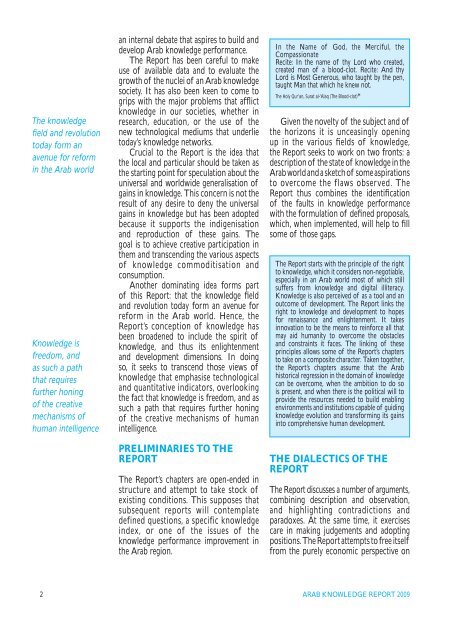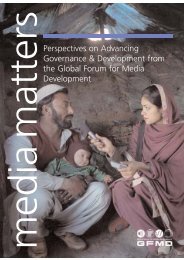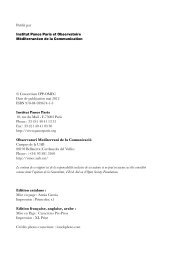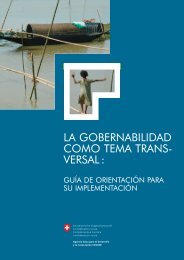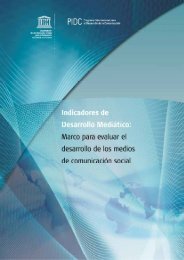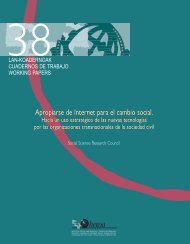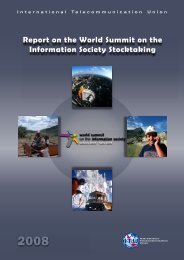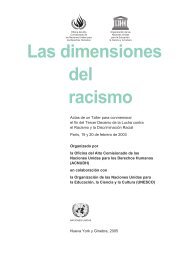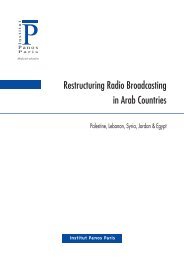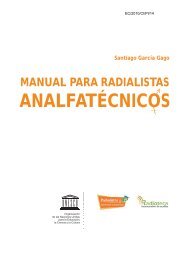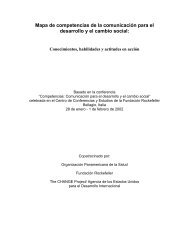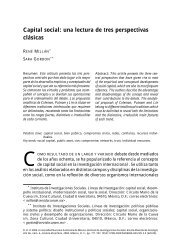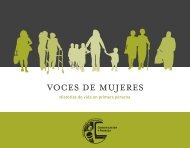Arab Knowledge Report 2009
Arab Knowledge Report 2009
Arab Knowledge Report 2009
- No tags were found...
You also want an ePaper? Increase the reach of your titles
YUMPU automatically turns print PDFs into web optimized ePapers that Google loves.
The knowledgefield and revolutiontoday form anavenue for reformin the <strong>Arab</strong> world<strong>Knowledge</strong> isfreedom, andas such a paththat requiresfurther honingof the creativemechanisms ofhuman intelligencean internal debate that aspires to build anddevelop <strong>Arab</strong> knowledge performance.The <strong>Report</strong> has been careful to makeuse of available data and to evaluate thegrowth of the nuclei of an <strong>Arab</strong> knowledgesociety. It has also been keen to come togrips with the major problems that afflictknowledge in our societies, whether inresearch, education, or the use of thenew technological mediums that underlietoday’s knowledge networks.Crucial to the <strong>Report</strong> is the idea thatthe local and particular should be taken asthe starting point for speculation about theuniversal and worldwide generalisation ofgains in knowledge. This concern is not theresult of any desire to deny the universalgains in knowledge but has been adoptedbecause it supports the indigenisationand reproduction of these gains. Thegoal is to achieve creative participation inthem and transcending the various aspectsof knowledge commoditisation andconsumption.Another dominating idea forms partof this <strong>Report</strong>: that the knowledge fieldand revolution today form an avenue forreform in the <strong>Arab</strong> world. Hence, the<strong>Report</strong>’s conception of knowledge hasbeen broadened to include the spirit ofknowledge, and thus its enlightenmentand development dimensions. In doingso, it seeks to transcend those views ofknowledge that emphasise technologicaland quantitative indicators, overlookingthe fact that knowledge is freedom, and assuch a path that requires further honingof the creative mechanisms of humanintelligence.PRELIMINARIES TO THEREPORTThe <strong>Report</strong>’s chapters are open-ended instructure and attempt to take stock ofexisting conditions. This supposes thatsubsequent reports will contemplatedefined questions, a specific knowledgeindex, or one of the issues of theknowledge performance improvement inthe <strong>Arab</strong> region.In the Name of God, the Merciful, theCompassionateRecite: In the name of thy Lord who created,created man of a blood-clot. Recite: And thyLord is Most Generous, who taught by the pen,taught Man that which he knew not.The Holy Qur’an, Surat al-‘Alaq (The Blood-clot)*Given the novelty of the subject and ofthe horizons it is unceasingly openingup in the various fields of knowledge,the <strong>Report</strong> seeks to work on two fronts: adescription of the state of knowledge in the<strong>Arab</strong> world and a sketch of some aspirationsto overcome the flaws observed. The<strong>Report</strong> thus combines the identificationof the faults in knowledge performancewith the formulation of defined proposals,which, when implemented, will help to fillsome of those gaps.The <strong>Report</strong> starts with the principle of the rightto knowledge, which it considers non-negotiable,especially in an <strong>Arab</strong> world most of which stillsuffers from knowledge and digital illiteracy.<strong>Knowledge</strong> is also perceived of as a tool and anoutcome of development. The <strong>Report</strong> links theright to knowledge and development to hopesfor renaissance and enlightenment. It takesinnovation to be the means to reinforce all thatmay aid humanity to overcome the obstaclesand constraints it faces. The linking of theseprinciples allows some of the <strong>Report</strong>’s chaptersto take on a composite character. Taken together,the <strong>Report</strong>’s chapters assume that the <strong>Arab</strong>historical regression in the domain of knowledgecan be overcome, when the ambition to do sois present, and when there is the political will toprovide the resources needed to build enablingenvironments and institutions capable of guidingknowledge evolution and transforming its gainsinto comprehensive human development.THE DIALECTICS OF THEREPORTThe <strong>Report</strong> discusses a number of arguments,combining description and observation,and highlighting contradictions andparadoxes. At the same time, it exercisescare in making judgements and adoptingpositions. The <strong>Report</strong> attempts to free itselffrom the purely economic perspective on2 ARAB KNOWLEDGE REPORT <strong>2009</strong>


